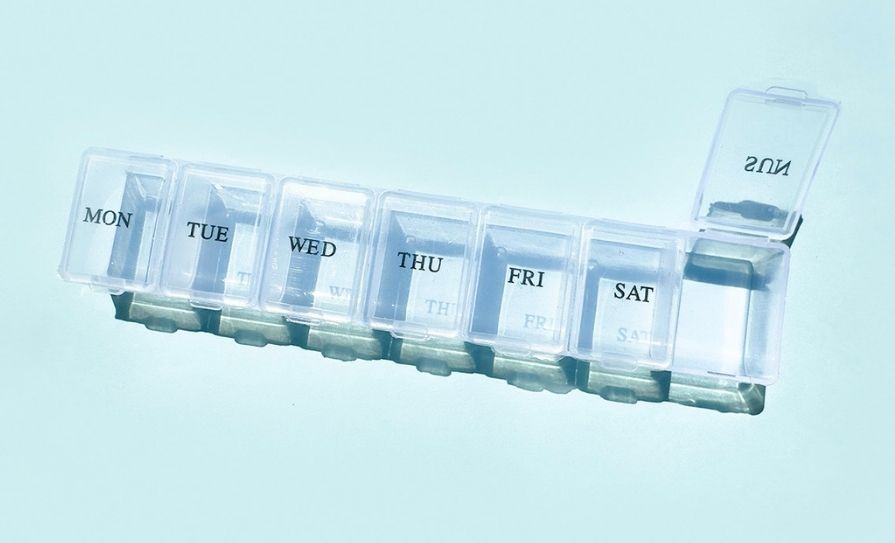New research has highlighted the role of vitamin D in the body’s immune response to fight infection and emphasises the importance of increasing intake while staying at home/’cocooning’
Researchers from The Irish Longitudinal Study on Ageing (TILDA) at Trinity College Dublin recently released a crucial report in response to the Covid-19 pandemic.
The report, titled Vitamin D Deficiency in Ireland — Implications for Covid-19: Results from the Irish Longitudinal Study on Ageing (TILDA), found that vitamin D plays a critical role in preventing respiratory infections, reducing antibiotic use, and boosting the immune system response to infections.
With one-in-eight Irish adults aged under 50 years deficient in vitamin D, the report highlights the importance of increasing intake.
Intake
Vitamin D is produced in the skin by exposing the body to just 10-to-15 minutes per day of sun. In Ireland, vitamin D can only be made between late March and late September. It cannot be made in winter, and the amount that we make in summer depends on how much sun we get, weather, and other factors. Even in summer, getting a sufficient amount of Vitamin D can pose a challenge due to cloud cover, rainy weather and a lack of sunshine.
However, deficiency can be remedied by adequate intake of foods and by supplementation. Vitamin D is readily found in foods like eggs, liver and oily fish — such as salmon or mackerel — as well as fortified foods, such as cereals and dairy products.
The researchers found there is insufficient daily intake of the vitamin across Ireland.
Some of the key findings include:
• 47 per cent of all adults over 85 are deficient in winter.
• 27 per cent of adults aged over 70 years who are ‘cocooning’ are estimated to be deficient.
• One-in-eight adults over 50 are deficient all year round.
• Only 4 per cent of men and 15 per cent of women take a vitamin D supplement.
At-risk population
People who get little sun exposure or eat inadequate amounts of fortified foods are most at risk, especially those who are currently house-bound or confined to their homes. Other people who fall into the high-risk category are those who are obese or physically inactive, and those who have asthma or chronic lung disease.
The researchers recommended that adults aged over 50 years should take supplements — not just in winter, but all year round if they do not get enough sunlight. Those who are ‘cocooning’ at present should also take supplements, they added.
Covid-19
Prof Rose Anne Kenny, Principal Investigator at TILDA, said: “We have evidence to support a role for vitamin D in the prevention of chest infections, particularly in older adults who have low levels. In one study, vitamin D reduced the risk of chest infections to half in people who took supplements. Though we do not know specifically of the role of vitamin D in Covid infections, given its wider implications for improving immune responses and clear evidence for bone and muscle health, those cocooning and other at-risk cohorts should ensure they have an adequate intake of vitamin D. Cocooning is a necessity but will reduce physical activity. Muscle deconditioning occurs rapidly in these circumstances and vitamin D will help to maintain muscle health and strength in the current crisis.”
Dr Eamon Laird, Research Fellow in Medical Gerontology and co-author of the report, added: ‘‘These findings show our older adults have high levels of vitamin D deficiency, which could have a significant negative impact on their immune response to infection. There is an even larger risk now of deficiency with those cocooning or confined indoors. However, eating foods such as oily fish, eggs, vitamin D-fortified cereals or dairy products and a daily 400IU (10ug) vitamin D supplement can help avoid deficiency. However, Ireland needs a formal vitamin D food policy/recommendation, which we are still lacking — for instance, Finland has such a policy and has virtually eliminated deficiency in their population.”
The report is available at tilda.tcd.ie/publications/reports/pdf/Report_Covid19VitaminD.pdf.
Meanwhile, researchers from Technological University Dublin (TU Dublin) and Trinity College Dublin (TCD) have found that taking vitamin D supplements may enhance resistance to respiratory infections such as Covid-19, or limit the severity of the illness for those who do become infected. Dr Daniel McCartney, TU Dublin, and Dr Declan Byrne, St James’s Hospital and School of Medicine, TCD, co-authors of the article published in the Irish Medical Journal, recommend that adults living in Ireland take 20-to-50 micrograms of vitamin D per day.
In recent decades, sun exposure has decreased, and many people in Ireland may consequently have low blood levels of vitamin D, with older adults especially likely to be vitamin D-deficient.
Speaking about the findings, Dr McCartney said: “Vitamin D deficiency is prevalent in Ireland, especially in older people, nursing home residents and hospital inpatients, and may significantly increase the risk and severity of viral respiratory infections, including Covid-19. Supplementing a healthy diet with 20-to-50 micrograms per day of vitamin D represents a cheap, safe and potentially very effective protection for Irish adults against Covid-19.”
Supplementation
Dr Byrne said these recommendations are important while we await development of a vaccine and trial evidence of effective drug treatment for Covid-19. “Our findings call for the immediate supplementation of all hospital inpatients, nursing home residents and older Irish adults with vitamin D. Our findings also suggest that vitamin D supplementation in the broader adult population, and particularly in frontline healthcare workers, may further help to limit infection and flatten the Covid-19 curve.”
The Irish Nutrition and Dietetic Institute (INDI) and the Irish Society for Parenteral and Enteral Nutrition (IrSPEN) have recently adopted these findings, and the Irish Pharmacy Union (IPU) is publishing them to their 2,300 members. Existing national and international guidelines from health authorities also already advise that older adults should supplement their diet with vitamin D.
Supplementation at the recommended 20-to-50 micrograms of vitamin D per day is a short-term measure to specifically address the risk of Covid-19 infection over the coming three-to-six months. It is advised that those who intend to supplement at doses above 20 micrograms per day after this period should do so only under the supervision of their doctor.







